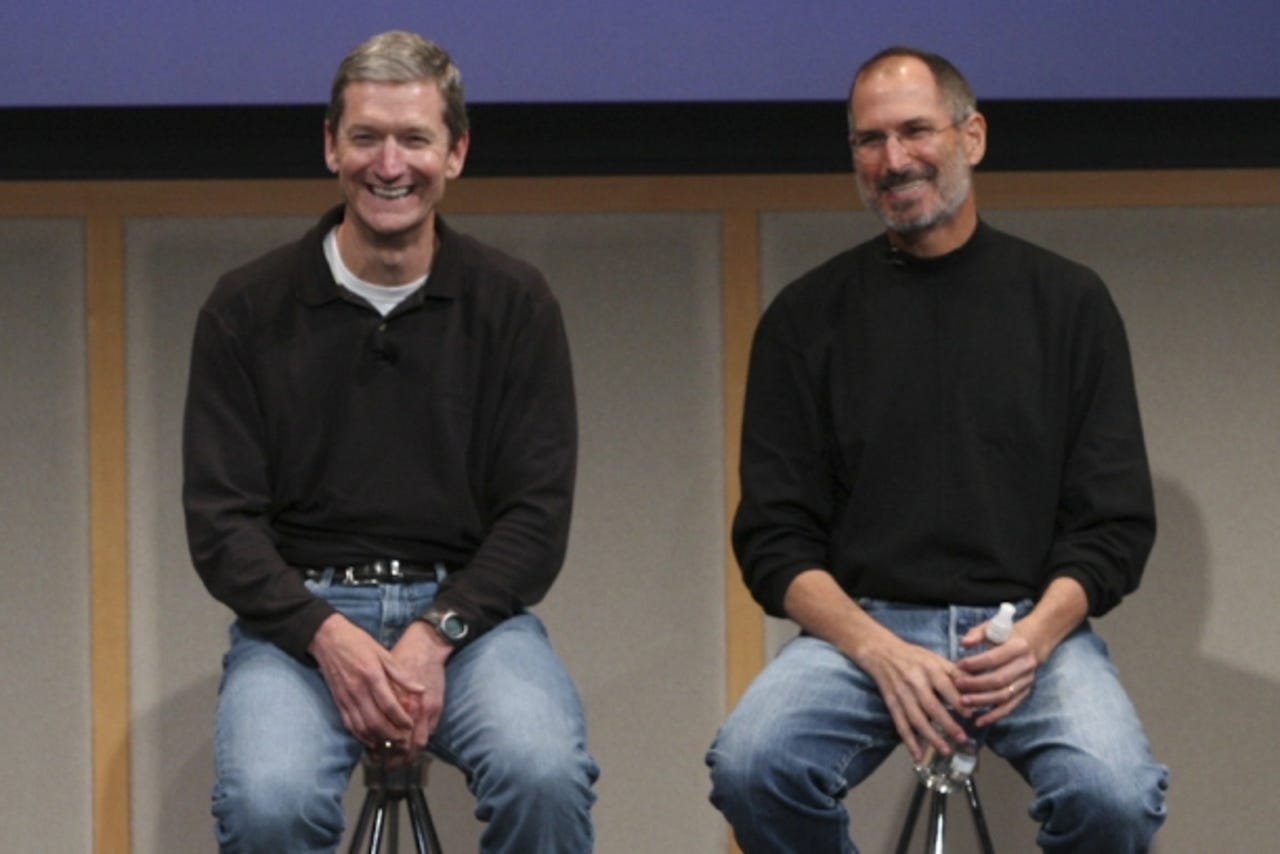Apple without Steve Jobs: The five challenges ahead

What tasks are on Tim Cook's to-do list as the new Apple CEO?
On Wednesday, Steve Jobs stepped down from his post as CEO, taking up instead the role of chairman of the board.
For many people, Steve Jobs is Apple - one of the company's original founders and the directing force behind its success today selling high-end hardware to a devoted public. But Apple now has a different leadership - Tim Cook, its former COO, is now at the helm.
Like Jobs, Cook is a seasoned Apple staffer. Unlike Jobs the creative, Cook comes from an operations background, taking care of supply chains and reseller relationships.
And so, with the changing of the guard, what challenges now face Apple?
1. Finding the next big thing
Apple's product strategy will not have been thrown into disarray by Jobs' departure - Apple will have a product roadmap all locked down for several years to come, so it will be a shock if Apple doesn't release an iteration of the iPad and iPhone on a yearly basis. Designing these iterations is more than a year's work, so it's clear Jobs-supervised products will be with us for some time yet.

Apple CEOs past and present: Steve Jobs and Tim CookPhoto: James Martin CNET
However, what isn't known is whether Jobs has left the company with another product category on the drawing board.
While iPads and iPhones have a healthy future in front of them, the nature of publicly traded companies is that shareholders demand growth - the sort of growth that comes from introducing new categories of products, as the company did with the first iPad in 2010.
Cook will need to be taking...
...over running the company with his designers and engineers working on the next big thing before the ink is even dry on his contract.
2. Real competition in the mobile market
Both the iPhone and the iPad left the rest of the industry trailing in their wake when they first launched, spawning a raft of substandard copycats.
The industry has regrouped since then and genuine contenders have appeared - as evidenced by Apple's patent battle with Samsung and Android's growing ubiquity.
The app ecosystem that has supported the iPhone, thanks in part to a lack of competition, is also being attacked - Android's own app ecosystem is growing and being ported to BlackBerry, if reports out this week prove correct, while the growing adoption of web apps will avoid the silos that Apple has kept developers in.
It is after all the app ecosystem that has kept iPhone sales in particular so buoyant. Cook will need to move to make sure it continues to do so.
Tablet wars: Apple won't have an easy ride in the slate market in futurePhoto: Natasha Lomas/silicon.com
3. Coping with the cloud
Apple's cloud strategy hasn't always hit the mark - MobileMe didn't exactly set the world alight, for example.
And yet the cloud can't be ignored. Google, Amazon and the like have all joined the cloud revolution and Apple would be remiss not to do the same.
Before Jobs left, he launched Apple's iCloud service - a syncing and storage product that automatically updates a user's content across their Apple devices and desktops.
So far, so good. However, the service isn't really...
...breaking new ground and isn't as ambitious as rivals' offerings. Cook will need to build on the iCloud foundation with must-have services to make it a compelling proposition for users in the cloud age.
4. The cult of personality
Steve Jobs was the face of Apple. With his standard uniform of black polo neck, jeans and trainers, his appearance onstage at an Apple event was taken for granted and every pronouncement pored over. When Jobs occasionally responded to an email by an Apple user, it would create ripples of fascination throughout the technology industry.
Apple - and Jobs - is well known for its secrecy and tight-lipped nature around all aspects of the company. This has helped fuel the Jobs personality cult. Having built up a reputation as the genius head of an innovative company, Jobs could afford to sit quiet and let the buzz build around him without lifting a finger.
It will be harder for Cook. He'll need to keep quiet to preserve Apple's Sphynx-like allure, while trying to generate his own following to feed back into that crucial Apple reputation: no easy task.
Steve Jobs onstage at the iPhone 4 launch: A hard act to followPhoto: James Martin CNET
5. Managing the transition
Swapping from one CEO's vision to another's is a tricksy business, regardless of company, and it will be tricksier still given how closely Apple's success and Jobs' strategy were linked.
Cook will have to spend time reassuring buyers, channel partners, suppliers and investors that he's a safe pair of hands.
Having Steve Jobs on the Apple board will be a boon to the company in that it won't be losing all the experience that Jobs has built up over his time in charge, but it will also present another challenge. Jobs is well known for his laser-focused control on all aspects of the design and engineering process - as well as his demanding management style. Will Cook be able to keep Jobs onside while moving ahead with his own plans for the company?